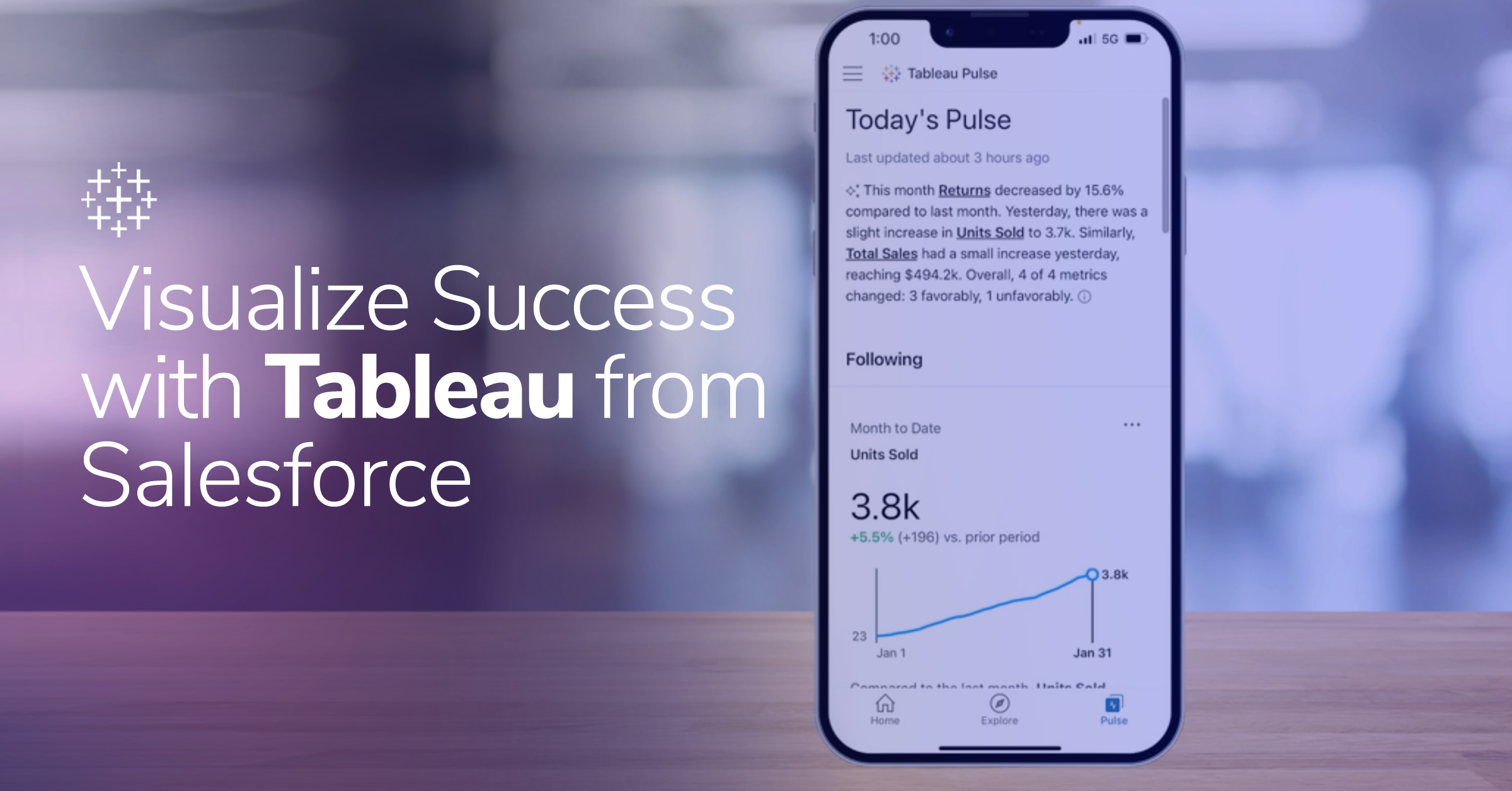Industry Influencer’s Guide to Building a Personal Brand

My favorite brands do not run Super Bowl ads. They do not have ad agencies. Most of them are not even incorporated.
My favorite brands are people.
They are individuals, often marketers, who understand the value of a personal brand and invest in themselves for the right reasons. They build their brands to contribute to industry conversations, to help others grow and find their place, to amplify the voice of their company and coworkers.
That does not mean they are selfless. It just means that their motivator is not selfish fame or fortune.
This is not my first Bounteous article of the self-help variety. I wrote about breaking into the industry and offered a key tip on being successful. Similar to a roundup of career advice from analytics influencers, this post is constructed from the wisdom of others, people I see as passionate and engaging leaders in the digital marketing community, in alphabetical order.
| Aaron Levy is Director of Paid Search at Elite SEM | |
| Dana DiTomaso is President of Kick Point (Interview) | |
| JD Prater is Ads Evangelist at Quora | |
| Joe Martinez is Director of Client Strategy at Clix Marketing (Interview) | |
| Kirk Williams is owner of ZATO (Interview) | |
| Michael Bartholow is Director of Enterprise Platforms at Bounteous (here) | |
| Mike Arnesen is CEO of Upbuild |
This is a list of brilliant marketers that I have met in my career. It is not exhaustive and does not represent the entire digital marketing industry. But I can promise you they are tremendous influences on marketing and they are active for the right reasons.
I asked these industry influencers a series of questions to uncover how they designed a brand for themselves, built it into something that people knew and respected, and how they have maintained it along with their company’s brand. I provide commentary along the way but try to stay out of the way as much as possible.
Defining a Personal Brand
The marketing industry has many voices but relatively few unique personal brands and perspectives. Whether lack of originality -- it occasionally feels like we are all using the same channels and tactics -- or lack of diversity, the need for new, brave guides is vital.
People interpret and react to brands differently, and every marketing association or publication has their own definition. However, many would agree that two pillars of a brand are authenticity and consistency. Strong brands represent something each day to each person.
Before reading how these influencers built their personal brands, it is essential for you to define your personal brand. What do you stand for in this noisy landscape of constant commentators?
You will see that many of contributors have a consistent theme in their personal brands: they help people.
What a great phrase! Check out this post from Rand Fishkin that goes into more detail. Mike continues:
"Situations where I've provided value in the past yield incredible things years and years in the future. In many ways, my brand and my company's success are the results of help that I gave or impressions that I made four to eight years ago.”
- Mike Arnesen
I suppose I should point out that this article is an example of that. Mike made a name for himself years ago in the SEO space as a knowledge sharer, someone who gave away the hard lessons they learned. So I asked him on Twitter to contribute and he did (Thanks again, Mike!).
“I try to provide value and share knowledge with no agenda. This could be in the form of blogs, podcasts, webinars, or Twitter conversations. Everyone can build up others in the community by being a mentor, making introductions, and inviting them along for the ride. I would also add being approachable and friendly online helps.
- JD Prater
Ads Evangelist, Quora
In addition to being friendly and approachable, Prater adds:
Differentiating from Your Company
The dividing lines between employee and employer are fascinating. Whether you are Jane Doe at Jane Doe LLC or Junior Support Associate at Mega Co., it’ is important to understand how the two complement each other. I love how Dana sees herself as a platform for her company.
“There’s me, Dana, then there’s Kick Point, my company, and I really want to make sure I’m out there as a person and people know me but there’s this whole agency that comes behind it. When I talk about something on stage, it isn’t just me in my office doing this stuff. Everybody at the agency is doing interesting things and I am the person who does the speaking engagements about it… I try to be the platform.”
- Dana DiTomaso
President, Kick Point
It’s like she is the recognizable megaphone that broadcasts her coworkers and company. As we hear from the others, that can be a tough line to walk.
“I’m trying to rebuild lines between me and my company. When you build a business that is 100% tied to your name, every single lead is also tied to your name. They heard your talk on Shopping campaigns so they want you to work on their Shopping campaigns.”
- Kirk Williams
Owner, ZATO
Mike, as a founder, had similar things to say about his experience.
“They say that a company is built in the image of its founder, so to a large degree, UpBuild's brand and mine are very similar. They differ a bit in that mine is a snarkier and contrarian. More opinionated and less diplomatic. When I'm advising someone on the UpBuild team or when I'm speaking on behalf of UpBuild, I tend to be much more diplomatic and advocate for acceptance of other points of view (even if they're not ones we agree with). When it's just me speaking on behalf of myself, I'll be considerably more pointed. When I have the time to write on my personal blog (it's been a while) I tend to let loose a lot more.”
- Mike Arnesen
Mike makes some great points and, whether you are a founder or simply a small piece of a much larger puzzle, it is critical to remember who you are representing and ensure that you are able to represent each fairly. Authenticity and consistency, two of the brand pillars. It is important to be authentic to your personal brand while representing your corporate brand.
JD points out that it is often the other way around. Your personal brand can be viewed as an extension of your employer.
“A lot of the time your personal brand is tied to your company brand. And I think that’s ok. If company’s brand is bigger than yours then leverage to help build and establish yours.
- JD Prater
I did that 100 percent. Many digital marketers with “analytics” in their job description have at some point used this blog to bail them out of tagging jail with GTM recipes or Campaign Manager integrations. I absolutely used my company’s brand recognition to compensate for my lack thereof. LunaMetrics/Bounteous gave me the initial authority I needed to build my own authority.
And of course, working for a great company helps. If you and your company align on the things like values and tone, the line between the two may blur, but you're able to be more of yourself in your outward presentation, as Aaron adds.
"To a degree they’re one and the same, though I don’t know that it was necessarily by design. My personal brand is pretty whimsical with a touch of seriousness, which to a degree is the same as Elite. We (and I) both believe happy people deliver the best work. "
-Aaron Levy
Director of Paid Search, Elite SEM
Broadcasting a Personal Brand
Every message needs a medium. The contributors called out a few usual suspects, both writing and speaking at industry conferences and events. Dana makes a good point.
“The barrier to entry in digital marketing is extremely low. You can say, ‘I am an Instagram expert because you have 6 followers, But if you’re sitting in the audience thinking, ‘I could be adding to this,’ then you should be pitching.
That low bar means huge numbers of people are trying to be the next Seth Godin. But few will gain traction because they are thinking about follow counts rather than adding to the conversation. Like Dana said, if you have both the substance and desire to contribute, you should definitely try because you have things that others do not. Michael touches on that too.
“Everyone is a guru today and it’s hard to break in. Be flexible. I had as much luck contacting event staff directly and offering workshops or asking, ‘Where are your weak spots and how can I help?’ as I did filling out blind submission forms. For example, a regional conference offered me a speaking slot if I gave a short webinar on Google Analytics to their partner’s college class. I leapt at the opportunity. ”
- Michael Bartholow
Director of Enterprise Platforms, Bounteous
Based on Michael's on experience he adds:
JD expands on that by focusing on providing value rather than selling your brand.
“I found there’s a positive feedback loop containing two foundational components: 1) provide a lot of upfront value, and 2) provide value on underutilized or trendy topics. To the first point, I wrote several blogs on multiple industry publications to show I knew my stuff and slowly leveled up the publications by referencing the others. To the second point, I tried to provide an unique point of view on topics people weren’t covering or on features that I had a deep knowledge in. This helped me get my name out there by leveraging social media. By building this foundation, I could pitch conferences and point to these blogs as proof that I could speak on these topics.”
- JD Prater
Like JD, Joe and Kirk’s path to conference circuit success also led through writing to demonstrate value.
“Getting into the speaking circuit goes back to me writing. I couldn’t get in speaking anywhere, so I figured I needed to build a name for myself… so when a friend recommended me for a conference, I had something I could show them of my knowledge within the PPC industry.”
- Joe Martinez
Director of Client Strategy, Clix Marketing
English teachers everywhere can point to this article and these quotes as proof of the importance of writing skills - both writing coherently and communicating ideas in a way that is easy to follow and digest. Depending on your industry, you may already be honing these skills in how you communicate with your clients or the deliverables you create.
“I was thinking about personal branding and how to market myself. I was starting to get involved on Twitter, talking with people, especially with the popular industry #ppcchat hashtag, which led to writing and eventually I wanted to speak.”
- Kirk Williams
Writing didn’t only lead to Kirk knowing he wanted to speak though. He continues:
Sharing and contributing seems to be a common denominator. Whether blogger or tweeter, engaging a community or industry is key to leading it. Now, on behalf of the Internet, I’ll remind us all that the world does not need more content. But it could always use better content, more diverse perspectives, unique approaches to timeless questions. That’s where you come in.
Measuring Success
Smart marketers start with a goal. Whether running an ad campaign or crafting an international marketing strategy, we ask a lot of the same questions:
- What is my current state?
- What is my end state?
- How do I get between here and there?
- How will I know when I’ve gotten there?
So, how do the professionals measure success in this particular space?
Tell me about it. Aaron continues:
I can count on one hand the number of direct leads or clients I’ve gotten from ~100 odd conferences over the year, but it is a bit more tangible to look at the number of times a slide/blog post/podcast I’ve participated in is cited to win new business.
- Aaron Levy
Quantifying advertising return on ad spend is a dream to compared to measuring the impact of a personal brand. You can see that these marketers, some of the smartest minds I know, struggle to define it. But, it’s worth pointing out, none of them mention follower counts, salary tiers, job offers, or Aston Martins.
“User engagement is the thing I follow closest. If I speak or write, I want to see great conversation around it, which I see as a micro conversion to show I’m on the right track. But I try not to focus too much on it and, instead, trust the bigger, broader strategy.”
- Kirk Williams
Even without hard KPIs, there are specific items you can analyze and measure, even informally, to determine if you've contributed value.
“I always pitched success as company brand awareness and thought leadership, because the company typically footed the travel bill. This also means personal brand awareness gets rolled into that company success. While I don’t have specific hard KPIs, I like to measure the value I added by analyzing how many people stuck around afterward to ask questions or discuss the session, the amount buzz on social media (did I get people tweeting or following me/company), how many people asked for deck/slides, and the session reviews from the conference organizers.”
- JD Prater
Feedback is crucial, which is an excellent point to conference attendees, Twitter followers, and anyone who has benefited from someone else's contributions to a particular industry. Telling someone that their guide/presentation/blog/video helped you personally is more valuable than you realize. Take a moment out of your day to drop an email, shoot them a DM, or publicly share how helpful they've been.
“Branding metrics are so available to us as marketers and I really believe that enters into folks’ minds when they start down the social media/conference route. At the end of the day, I’ve found simple quality-of-life metrics to be more key in tracking my own success. It's important to balance the payoff for your organization and your own happiness.
It's not always glamorous, but you have to love it enough to be authentic. Connecting with individuals at or after the event contributes to that payoff, especially if I've made their life easier. I try to make notes on how much I enjoyed an event or workshop, what I might do differently, and most critically, if it made me happy.”- Michael Bartholow
And lastly, these metrics can change depending on where you are in your own growth. What might have been your goal last may be different in the years to come. Like with any great business, it's important to continually monitor which metrics you choose to measure success and if that success is enough to continue to grow.
“This question comes at an interesting time for me. I used to measure success by how great a response my blog posts got, how often I was invited to speak at things, and how frequently I was cited as a subject matter expert across the web.
As I've been growing my own company over the last three years, I've moved more and more behind the scenes. It's not about me anymore; it's about my team.
I still see a ton of value in blogging and speaking at conferences, but I have to be much more guarded about where I invest my time and the tradeoffs I'm willing to make. That's all to say, the way I measure the success of my own personal brand remains to be seen.”- Mike Arnesen
Their turmoil satisfies me. I love that they think about their audience. Engagement, conversation, coworkers, company success. That’s what it is all about.
Takeaways As I See Them
- Personal brands are consistently authentic.
- Influence is not measured in follower counts. It is better to think of it in terms of engagement and contribution to the industry.
- Most industries have many voices but few unique perspectives.
- An influencer’s medium can vary and should be tailored to the personal brand. Not everyone needs to hold a microphone or craft perfectly pithy tweets.
- Personal brands and corporate brands need not be identical, but need to harmonize.
- Love your audience. If you focus on them, and how you can help them, it will be.









